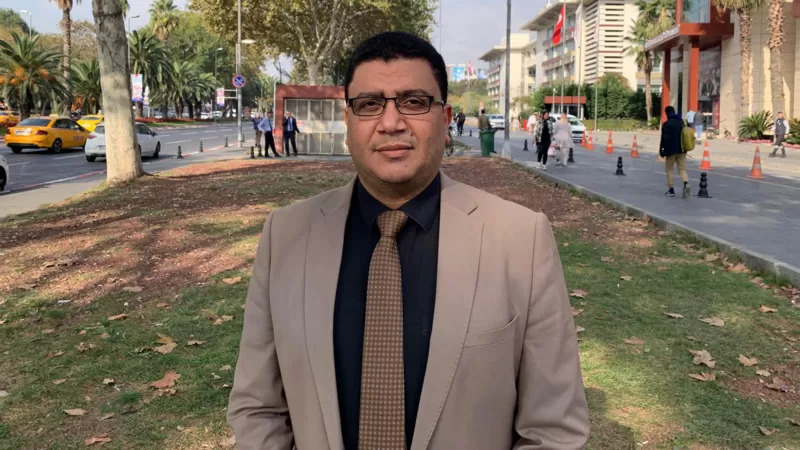The spokesperson for the Muslim Brotherhood in Turkey has said the organization supports the process that was started last year to normalize Turkish-Egyptian relations, which were disrupted in 2013, according to a report by BBC Turkish service on Friday.
Egypt and Turkey have not named ambassadors to their respective embassies and have operated at the level of chargé d’affaires since 2013, when relations worsened following the ousting of Egyptian President Mohamed Morsi by military chief Abdel Fattah el-Sisi, now the country’s president.
Turkey began to take steps last year to normalize relations with Egypt, with President Recep Tayyip Erdoğan saying talks between Egypt and Turkey are ongoing at the level of the intelligence services at the moment. He also said Ankara hopes that dialogue will be at higher levels after years of tension.
The Brotherhood’s Turkey spokesman, Ali Hamed, said in an interview with BBC Turkish that they consider the normalization of relations between Turkey and Egypt to be a positive development and that they currently face no pressure from Ankara that would prevent their activities in the country, especially in terms of the press.
“The shorter the distance between the [Turkish and Egyptian] administrations, the better because those in power aren’t permanent, but the countries are,” Hamed said, adding that the Muslim Brotherhood’s stance towards the el-Sisi administration won’t change since they can never accept a regime that took over through a military coup.
When asked whether they had received any official or unofficial requests from the Turkish authorities to halt or reduce their activities in the country, including their media outlets, or to facilitate the extradition of an Egyptian citizen who is critical of the el-Sisi administration, Hamed replied that they had received no such requests and emphasized that there was freedom of the press in Turkey.
The BBC also asked the spokesman to comment on claims reported by Arab media outlets last week that the Turkish authorities had arrested more than 30 Egyptian journalists who are allegedly members of the Muslim Brotherhood as a result of the process of normalization between the two countries.
“I want to emphasize that this news isn’t true,” Hamed said, adding that only one Egyptian journalist, who is a liberal and not a member of the Brotherhood, was briefly detained in Turkey and that it was due to violating the conditions of his residence and not a politically motivated move.
Two senior Turkish officials who anonymously spoke to the London-based news outlet, Middle East Eye, earlier this week also denied the reports about the arrests, with one of them saying, “We only detained an Egyptian journalist who was later released.”
Earlier this week Egyptian Foreign Minister Samih Shukri announced that they had suspended the process of normalization with Turkey on the grounds that there was no change in the country’s Libya policies.
Commenting on the issue, Turkish Foreign Minister Mevlüt Çavuşoğlu said on Wednesday that Egypt was using Ankara’s energy exploration deal with Libya’s UN-recognized government as a reason to slow down the fragile normalization process between them.
“We aren’t the responsible party for the slow pace of the reconciliation talks,” Çavuşoğlu said, adding that the deal wasn’t against Egyptian interests and that Cairo must see Turkish-Libyan cooperation as positive.
After the Arab Spring, İstanbul became a capital of Arab media critical of their governments back home, especially for Egyptian media linked to Morsi’s Muslim Brotherhood.
Since the beginning of the talks, Arab media reported comments that Ankara would exercise control over members of the Muslim Brotherhood in Turkey and their activities in an attempt to accelerate the process of normalizing relations with Cairo.
Source: Turkish Minute



